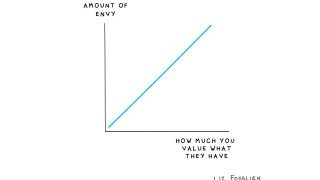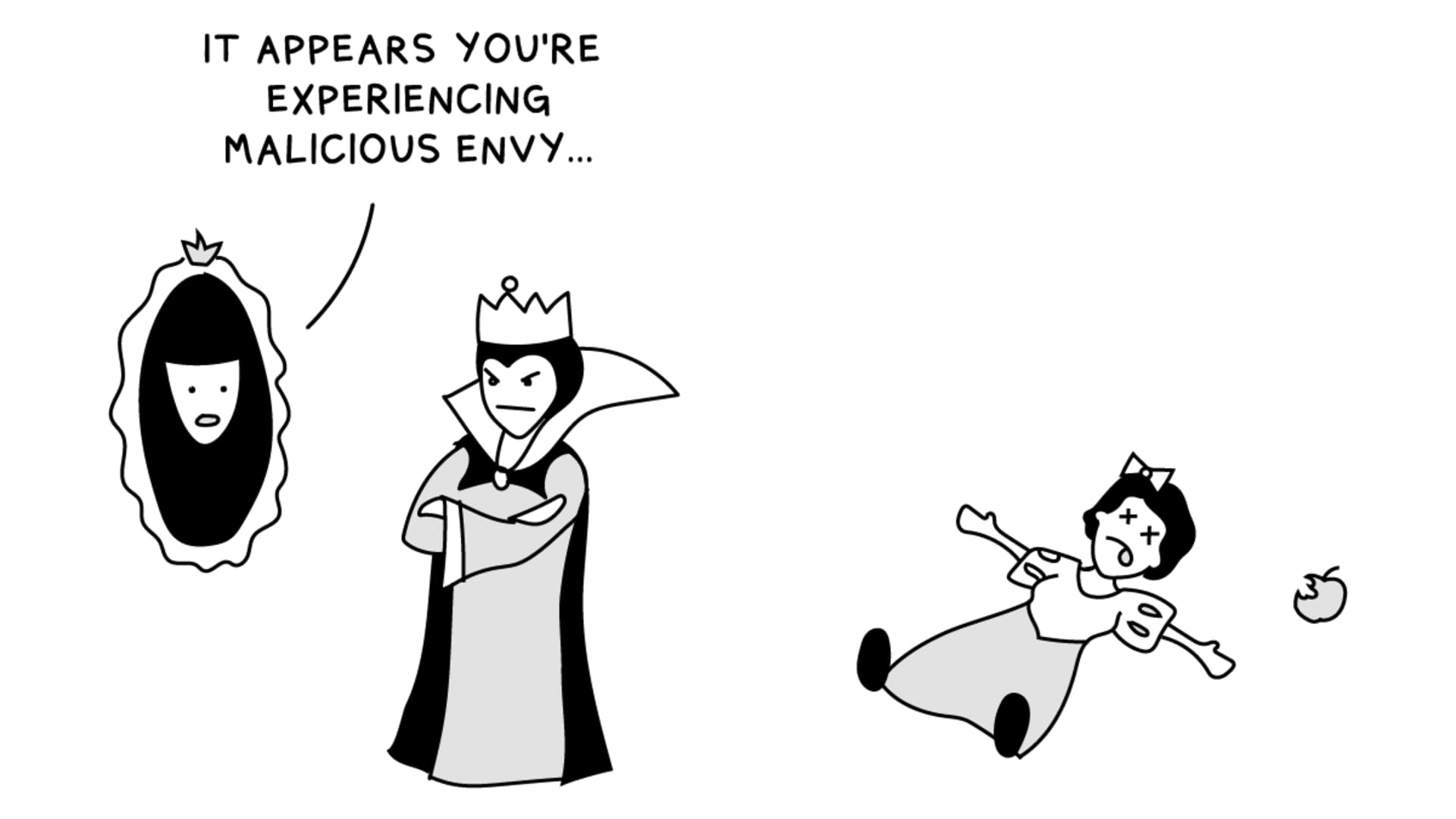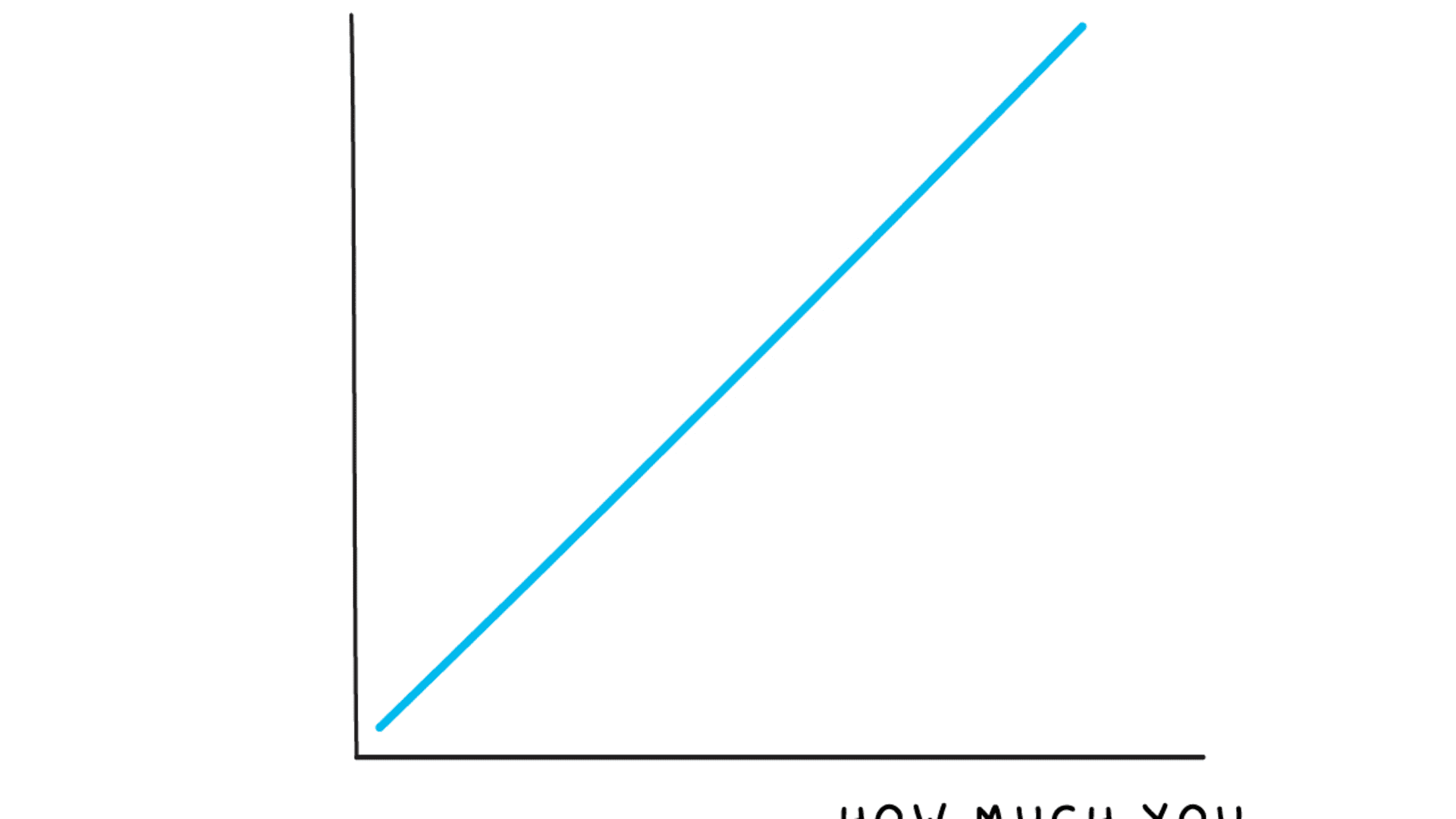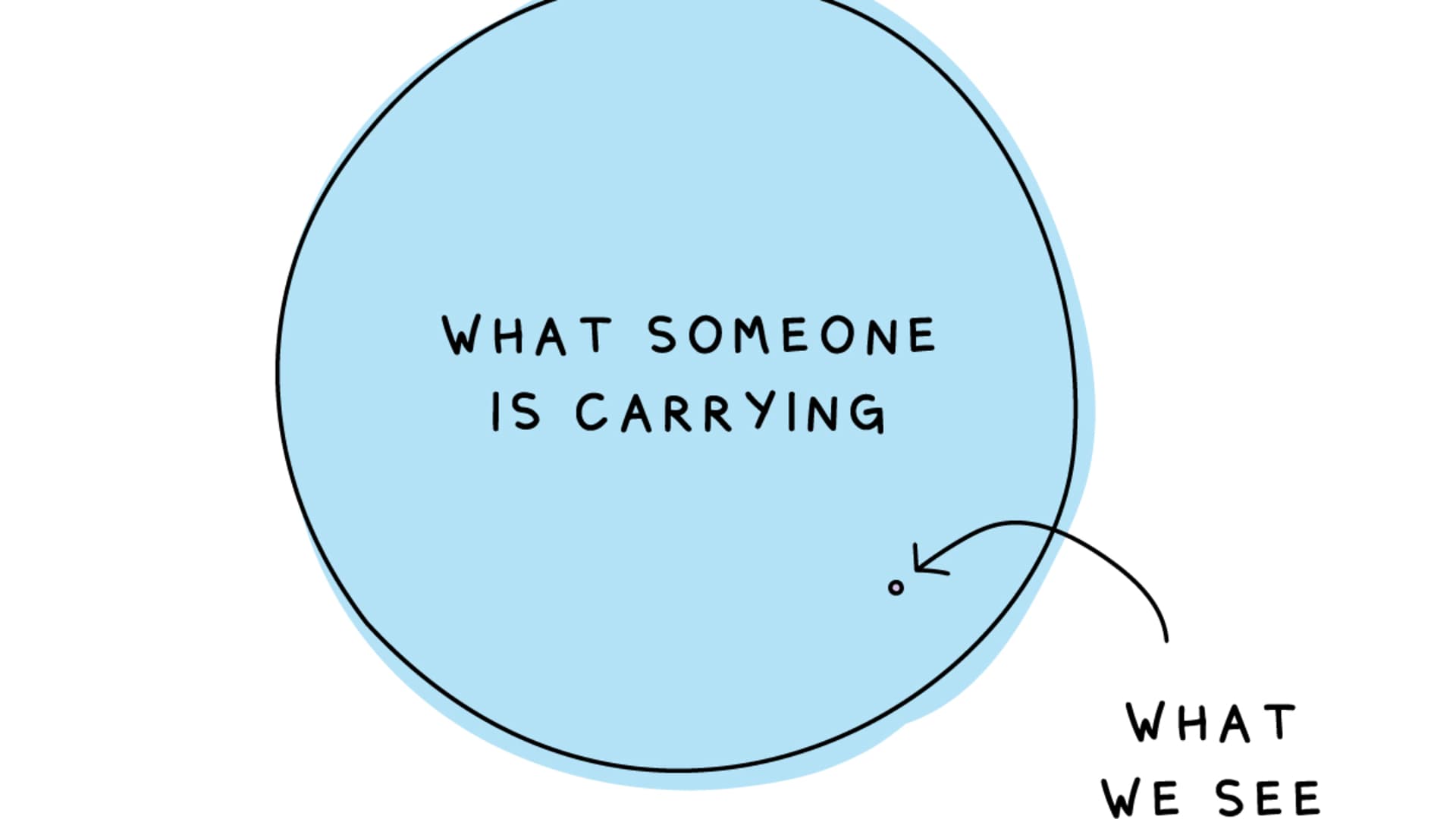
Too often, we draw comparisons that torpedo our self-esteem and make us miserable. But sometimes, when envy sends you down a dark spiral, it's because you're not comparing yourself enough.
For example, you watch a pianist breeze through Rachmaninoff's Piano Concerto No. 3. You tell yourself, "I'm so bad at piano" — and you stop there. You don't think about the fact that the pianist practiced every day for hours since they were in preschool.
Luckily, with the right tools, you can decode what your jealousy is trying to tell you, and then turn your emotions into positive action:
1. Make sure your envy doesn't become malicious.
Get Southern California news, weather forecasts and entertainment stories to your inbox. Sign up for NBC LA newsletters.

Psychologists distinguish between "benign envy," when we admire someone and try to emulate them, and "malicious envy," when we dislike and begrudge the other person for having what we want.
It's the difference between "They have a penthouse apartment, and it's cool how they got it" and "I hate that their home has panoramic views, and I want them to suffer."
Money Report
To be clear, both are painful. But benign envy can be healthy because it motivates people to invest more effort to be as successful as the other person, while malicious envy can make us nasty.
Use these phrases to shift your thinking from malicious envy to benign envy:
- "I'm inspired by _____. Maybe I can learn from them, or ask them to be my mentor."
- "I haven't done what they've done ... yet."
- "Every person is on their own journey. I'm grateful for mine."
- "If my role models stopped what they were doing, I wouldn't be able to enjoy their incredible work."
2. Listen to your strongest triggers.

Comparison can teach you what you value: You're more likely to feel intense admiration when you see someone doing something that you want for yourself — even if you haven't consciously allowed yourself to want it.
Gretchen Rubin was a lawyer before she decided to pursue a career as a writer. Now she's a bestselling author. She told us that when she read about people who had amazing writing careers, she felt sick with envy. That to her was a strong signal that writing might be something wanted to pursue.
Self-awareness helps you turn your feelings into something useful. The next time envy rears its head, explore what it's telling you by asking:
- "What do they have that makes me feel less than?"
- "What void do I believe having it would fill?"
- "Do I really want what they have?"
- "If yes, how much, and is it worth taking action to try to get it for myself?"
3. Compare your past self with your present self.

You may not always be exactly where you want to be, but chances are you're not where you used to be, either. Pausing to take stock of your accomplishments — and the skills you've developed as a result — can help you feel proud of your progress.
Take a few minutes at the end of each month to reflect on these prompts:
- "What have I learned over the past few weeks?"
- "What was difficult, and how would I approach it differently given what I know now?"
- "What progress did I make?"
An important part of the progress you've made is what you learned. You might be starting over in a new place, like switching careers or ending a relationship. That doesn't mean you're "behind." It just means you're starting again, this time with experience.
4. Piece together the footage that was cut from someone's highlight reel.

It's easy to believe that other people live richer lives than they actually do. But we usually don't know what's really going on. And when we don't think through another person's behind-the-scenes, we're more likely to feel malicious envy.
The next time you're overcome with envy because of an Instagram post or a LinkedIn update, take a step back and ask:
- "How do I know that this other person isn't struggling in some way?"
- "What am I proud of that doesn't show up on social media?"
- "What would others be envious of if I did share it?"
It's also possible to get too caught up in your own highlight reel. If you're applying filters to every photo you share or only talking about the kudos you got from your boss, you risk feeling bad for not actually living the life you're portraying.
Think a bit more carefully about what you're trying to portray with the public stories you tell about yourself, and why. It's fine to share exciting life updates, but consider balancing it out, or toning down the language so it feels more authentic to your experience.
Mollie West Duffy and Liz Fosslien are the co-authors of "Big Feelings: How to Be Okay When Things Are Not Okay" and "No Hard Feelings: The Secret Power of Embracing Emotion at Work." Mollie is a career and learning development coach who has advised leaders at companies including Google, LinkedIn and Slack. Liz is an illustrator, expert on workplace emotions, and the head of content and communications at Humu. Follow them on Instagram @lizandmollie.
Don't miss:
- Harvard researcher says there are 8 types of 'difficult' people—and passive-aggressive is the 'absolute worst'
- There are 3 types of employees. Here's the rarest one—and why psychologists say they outperform everyone else
- Jeff Bezos: People who are 'right a lot' make decisions differently than everyone else—here's how
Want to earn more and work less? Register for the free CNBC Make It: Your Money virtual event on Dec. 13 at 12 p.m. ET to learn from money masters like Kevin O'Leary how you can increase your earning power.
Sign up now: Get smarter about your money and career with our weekly newsletter






